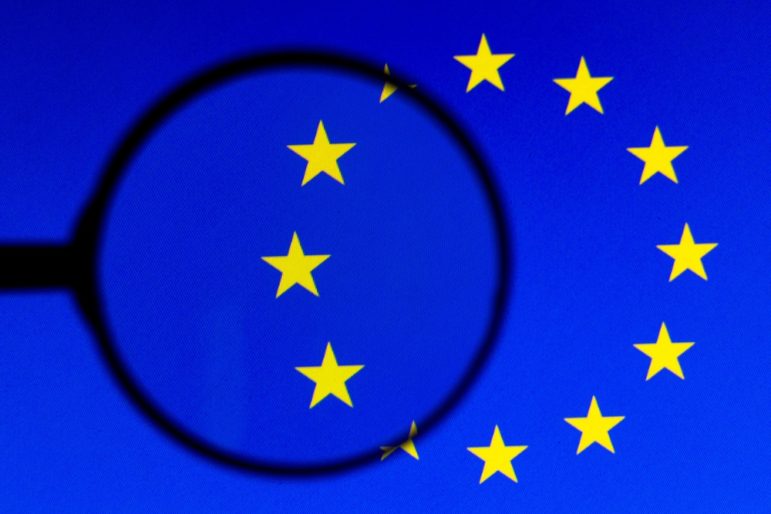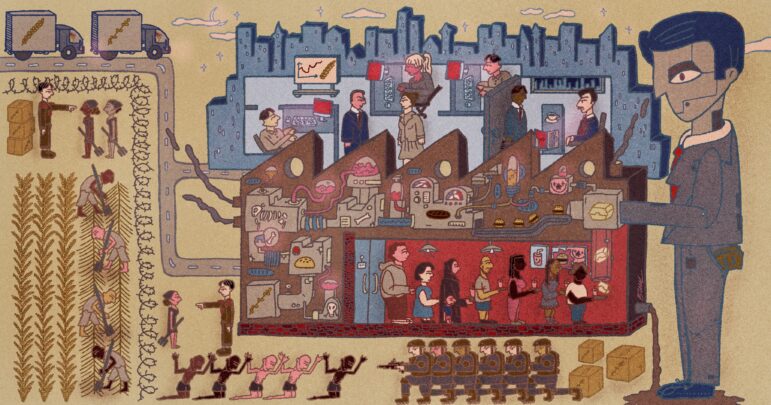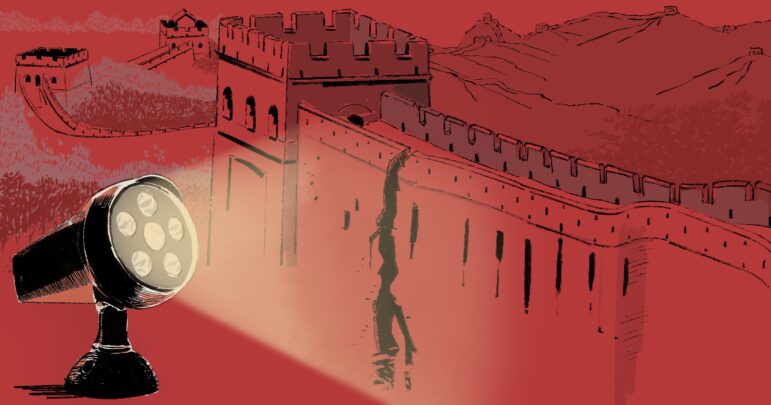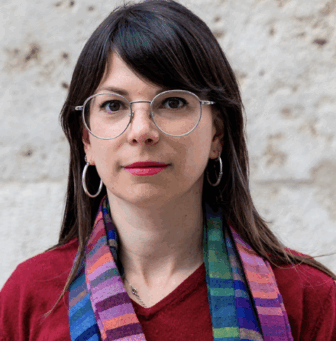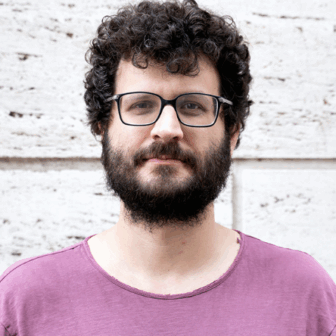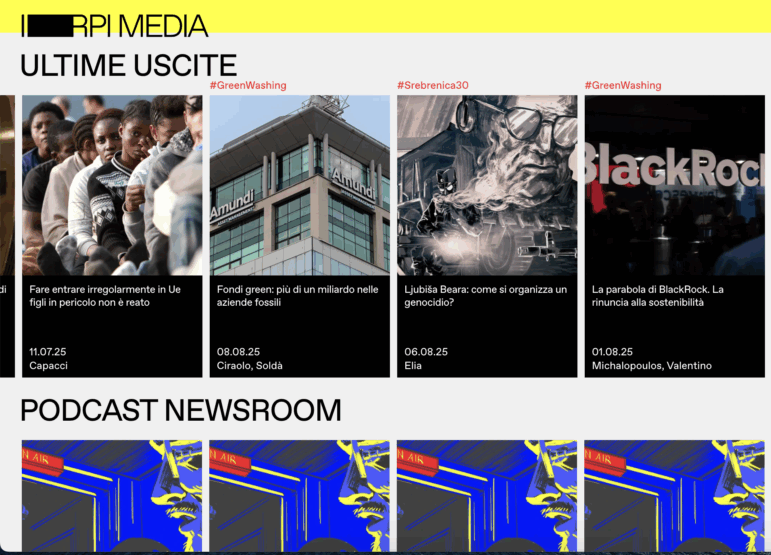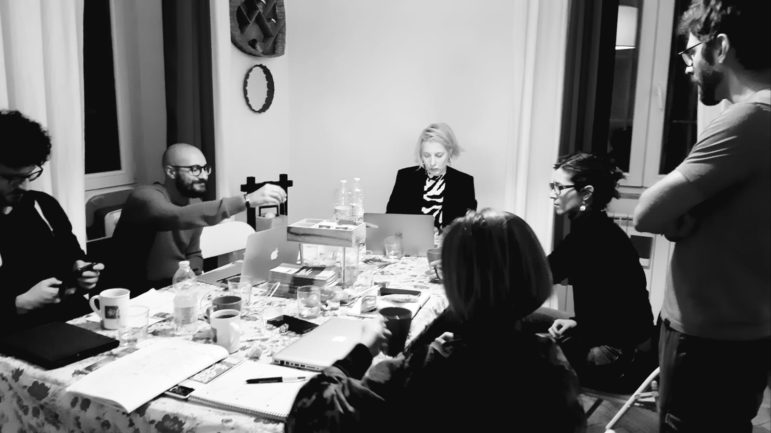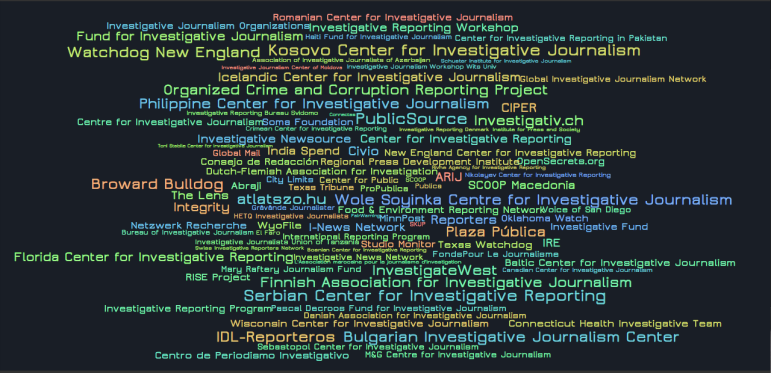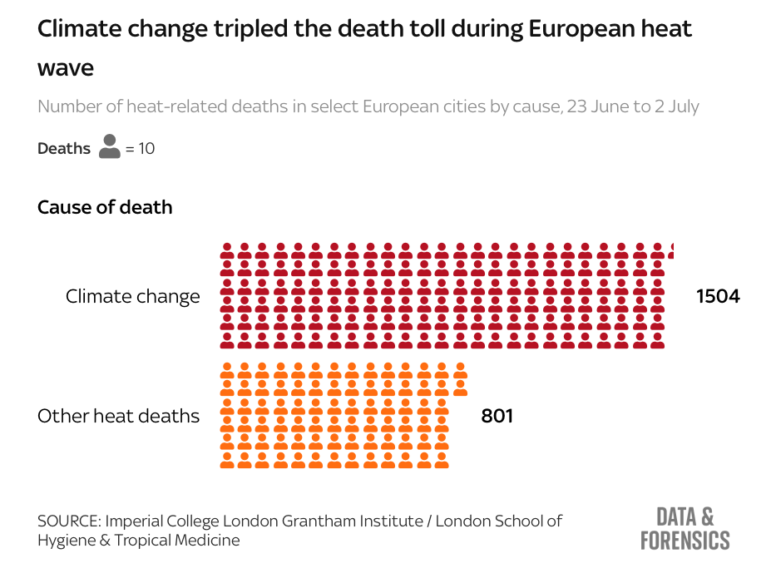

An illustration accompanying an IRPI investigation into sexual harassment in Italian journalism master's programs. Image: Claudio Capellini, IRPIMedia
How Italy’s First Investigative Center Combines Italian and International Angles
The first center of its kind ever created in Italy, Investigative Reporting Project Italy (IRPI) has become a pillar of investigative journalism in a country where news media often lack the resources to embark on long, time-consuming probes and reporters face numerous challenges, from low pay to legal intimidation and risks to their personal safety.
A GIJN member, IRPI currently produces several stories per week thanks to a team of about 20 people, including 16 journalists, and has under its belt collaborations with hundreds of reporters around the world.
Its investigations typically combine an Italian and an international angle: some of its most recent efforts shed light on greenwashing by asset management firms, drug trafficking in the Mediterranean, and Russian oligarchs with properties in Italy receiving EU subsidies despite being targeted by sanctions.
In May 2025, IRPI was awarded the Difference Day Honorary Title for Freedom of Expression by two Brussels universities, under the patronage of UNESCO: The most recent of a long series of prizes attesting to the quality of the group’s work.
GIJN sat down with Cecilia Anesi, IRPI co-founder and center director, and Lorenzo Bagnoli, co-chief editor, to discuss the group’s history and where it plans to go next.
GIJN: Tell me about how IRPI saw the light and how it evolved over the years.
Cecilia Anesi: IRPI was born after some of us attended the Global Investigative Journalism Conference in Kyiv in 2012. There, we realized that unlike other news organizations from around the world, no major Italian outlet had sent their journalists: we were all freelancers, most of us very young. Back in Italy, we met again and decided to try and open a center for investigative journalism inspired by those that were present at the Conference, such as OCCRP and ICIJ. We founded a nonprofit association, similar to others that at the time were cropping up in various parts of the world to do independent journalism. We didn’t want this to be a “country club,” but a real workplace where we could produce investigative journalism professionally and sustain ourselves with it. That mission has only become stronger since March 2020, when we launched our own online outlet, IRPIMedia. We now publish our work on our website, instead of struggling to sell it to other newspapers for peanuts like we did before.
GIJN: How would you describe your place in the Italian media landscape today?
CA: We exist and operate on very different levels. On the one hand, we represent Italy in large transnational investigations, for example, Suisse Secrets or Dubai Unlocked. Secondly, we run investigations on national Italian stories, albeit without forgetting their foreign ramifications, which we cover with the help of freelancers abroad. Thirdly, we have started to play a coordination role in projects focusing on local issues, in parts of the country that have often been forgotten by mainstream media. We are frequently contacted by activist groups that want to shed light on something going on where they are. We don’t have the resources to follow up on all these requests, nor is it our core mission, but we do provide assistance to smaller collectives who focus on specific areas or topics, including by helping them secure funding.
GIJN: Looking at your website I was struck by the variety of topics you cover. What are your editorial priorities, how do you decide which stories you want to pursue?
Lorenzo Bagnoli: At the beginning that depended largely on our backgrounds. Several among us had always worked on organized crime with an eye on transnational stories, so that was a natural topic to focus on. Then we also became a point of reference for freelancers, because we pay a little better than other Italian outlets, we have a level of accuracy that is difficult to achieve elsewhere, and we always apply the same editorial process regardless of whether the journalist is a newbie or has 25 years of experience. In order to choose among the stories we are pitched, we try to understand whether or not they can be developed following our standard method: coming up with an investigative hypothesis, and looking at ways to confirm it or disprove it.
That said, in recent years we have also identified four areas of research we are particularly interested in: surveillance, migration, organized crime, and the environment.
GIJN: How do you remain afloat financially? What’s your business model?
CA: At the onset, we were hoping to rely chiefly on core funding, where donors provide not for a single project but rather to support an outlet as a whole, and we did manage to convince some international donors that weren’t active in Italy and southern Europe to get involved and support our work. But more recently, this kind of revenue has dwindled, and in the last year and a half we have had to rely more on smaller grants for specific investigations. We have become pretty good at managing these projects, but with some 30 or 40 of them per year, each with its own deadlines and paperwork, we are overloaded with administrative work. However, this has allowed us to remain afloat.
Last year we also launched a membership campaign, which we hope in time will become one of the pillars of our operation. We invite our readers to support us with a donation, and in return they become part of a community, with a weekly newsletter, a Slack group where we share extra material and they can interact with us as well as with one another, monthly online conferences on current affairs topics or specific investigations, and master classes.
GIJN: How’s this membership campaign going so far?
CA: It’s going well, although growth is very slow. At the moment we have some 190 members. One of the challenges is increasing our reach and making IRPIMedia better known. We have seen that when we go to the ground to present our work, that has a positive effect on membership as well. But we have a long way to go, as things stand, the membership project costs us more money than it brings in. However the financial aspect is not the only one that matters. For example, at the beginning there was little interaction within the community, but that is changing for the better.
GIJN: Resources available to independent nonprofit media have dramatically shrunk this year as a result of the Trump administration’s cuts to US funding, particularly via USAID. Have things gotten harder for you in the last few months?
CA: I’ll give you a two-pronged answer. On the one hand, yes, there is this dark cloud hovering over our industry, and we’d be crazy if we didn’t see it. On the other, concretely, we haven’t been impacted by the cuts to USAID, because we weren’t benefiting from it in the first place. But this is hardly good news, as it goes to show to what extent investigative journalism in southern Europe has been excluded from big international funding schemes. We weren’t doing well yesterday, and we aren’t doing well today.
LB: Just to add, one area that shows how conditions have worsened is collaborative journalism. Donors have fewer resources, we are getting paid much less, and investigations are less ambitious. It’s as if the golden age that followed the Panama Papers investigation was coming to an end.
GIJN: What other challenges are you facing today as investigative journalists in Italy?
LB: I’m loath to describe Italy as always being an anomaly on everything. The financial woes of investigative outlets, as we were saying, are common throughout southern Europe. I wouldn’t single out the Italian context as more challenging than others, with the exception of those who investigate organized crime and are very close to the territories where such illegal activities occur. They do expose themselves to a level of danger that remains specific to Italy.
CA: Also, as our articles show, these are transnational criminal organizations, so it’s not like if you are in Amsterdam, Bratislava, or London, you are safe, they can find you there as well.
I also don’t want to make comparisons with other countries, but I can say that, in Italy, a 2022 legal reform has strengthened the “right to be forgotten,” which means that we, like all Italian news media, find ourselves flooded with content removal requests from people mentioned in our articles — some of them legitimate, others completely baseless. This poses a double problem: it causes a loss of information previously available online, and it slows newsrooms down. The same law has also de facto made it harder for judicial reporters to get hold of court documents, including on mafia cases.
This new legal framework has encouraged the practice of intimidation lawsuits against the media. Italian journalists were used to criminal complaints over what they said or wrote, but civil lawsuits seeking financial compensation were relatively rare. Now they’ve become more frequent, not just against large broadcasters and newspapers, but also mid-sized and smaller publications. Some of us have spent months defending ourselves in the courts of justice, which took away precious time from journalistic activities.
GIJN: Earlier this year, it emerged that the phones of several Italian activists and journalists had been hacked with malware developed by an Israeli cybersecurity firm, Paragon. It remains unclear, at this stage, exactly who ordered the spying, and to what extent Italian government agencies were involved. How did you react to the news?
LB: We tried to ascertain whether our devices had been targeted as well. There are organizations that can assist journalists with this kind of verifications, in particular we turned to Access Now. We did this via our surveillance desk, which I coordinate and has been covering this area for several years, so it was the easiest way to proceed. It seems that we weren’t targeted, but we also know that we don’t know everything…
GIJN: What does the future look like for IRPI?
CA: We are trying to move on from this transitional phase, in which we have to rely so heavily on project funding. We want to be better known, more followed, and more supported by readers. We’ll also keep looking for core funding from European donors, but also from Italian ones. The latter at the moment are virtually non-existent, but what we write can be of use to both corporate and institutional actors, so a commercial development could be possible in that direction as well.
LB: In order to grow our audience and raise awareness about the journalistic value of what we do, we are betting on new products as well. We have a book about gentrification coming out, and we’ll continue to produce podcasts, which work very well. Some of the things we do are almost inevitably niche, but we’d like to open up that niche as much as possible.
 Michele Barbero is an Italian journalist based in Paris. After several years at France 24, he currently works for French news agency AFP. His byline has also appeared in a variety of publications, including Foreign Policy, Jacobin, and Wired UK.
Michele Barbero is an Italian journalist based in Paris. After several years at France 24, he currently works for French news agency AFP. His byline has also appeared in a variety of publications, including Foreign Policy, Jacobin, and Wired UK.


